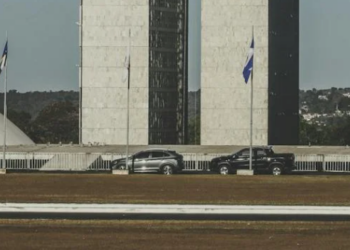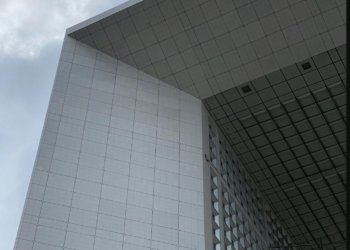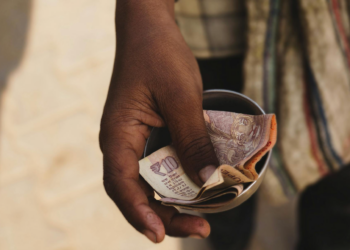by PublicABCP
Reviewed and translated by Matheus Lucas Hebling
The study Party Switching in Elected Upper Chambers: The Case of the Brazilian Senate, conducted by Lucas Couto (Aarhus University, Denmark), Amanda Vitória Lopes (UnB), Adrián Albala (UnB), and Vinícius Ruiz Paley (UnB), investigates the motivations behind party switching in Brazil’s Federal Senate. Published in Political Studies Review, the research is situated in a political context marked by increasing party fragmentation and debates over representativeness in Brazil’s political system, highlighting the uniqueness of legislative behavior in majoritarian systems.
The main objective of the study is to examine the reasons why Brazilian senators change party affiliation, distinguishing them from the motivations identified for federal deputies. To do so, the authors analyzed the period between 1990 and 2022, employing conditional logistic regression models as their methodological tool. The study stands out for its innovative approach, as the existing literature on party switching in Brazil has traditionally focused on the Chamber of Deputies.
The findings reveal that, for senators, the main factor driving party switching is ideological alignment with the new party. Unlike federal deputies—who are influenced by a combination of factors, such as proximity to the government and the electoral-party machinery—senators prioritize programmatic affinities in their decisions. This difference can be explained by specific features of the Senate, such as longer mandates and the majoritarian electoral system, in which a legislator’s personal reputation carries greater weight in political calculations compared to party structures.
The research advances theoretical debates on legislative behavior, particularly in bicameral systems, by showing how institutional differences shape distinct motivations across upper and lower chambers. Moreover, the study challenges the prevailing view that the Senate operates exclusively as an extension of the government or merely as a pragmatic arena driven by strategic calculations.
The work of Couto, Lopes, Albala, and Paley thus contributes to a deeper understanding of legislative dynamics in Brazil. By emphasizing ideological alignment as the key driver of party switching, the study distinguishes senators from other political actors and questions widely accepted assumptions about how Brazil’s legislative institutions function.
The results also provide important insights for debates on strengthening institutions and fostering public trust in the political system. Furthermore, the study serves as a foundation for future comparative analyses of bicameral systems worldwide.
Author profiles
Lucas Couto is a PhD candidate in Political Science at Aarhus University (Denmark). He holds a BA and an MA in Political Science from the University of Brasília (UnB).
Amanda Vitória Lopes is a PhD candidate in Political Science at the Institute of Political Science (IPOL), University of Brasília (UnB). She holds a Law degree from the Pontifical Catholic University of Paraná (2016) and a degree in Social Sciences from the State University of Londrina (2018). She is a member of the Laboratory for Research on Political Behavior, Institutions, and Public Policies (LAPCIPP/IPOL) and a researcher at the Center for the Study of Bicameralism and Comparative Institutions (NEBIC/IPOL).
Adrián Albala is an Associate Professor at the Institute of Political Science (IPOL), University of Brasília (UnB). He is the academic coordinator of the Specialization in Public Policy Advising at IPOL/UnB, founder and director of the NEBIC/IPOL research group on bicameralism and comparative institutions (registered with CNPq). He holds a PhD in Political Science from Université Sorbonne Nouvelle – Paris 3 (2013) and completed postdoctoral research at the University of São Paulo.
Vinícius Ruiz Paley holds a BA in Political Science from the University of Brasília.
Technical details
- Title: Party Switching in Elected Upper Chambers: The Case of the Brazilian Senate
- Authors: Lucas Couto, Amanda Vitória Lopes, Adrián Albala, and Vinícius Ruiz Paley
- Publication Year: 2024
- Source: Political Studies Review, OnlineFirst








